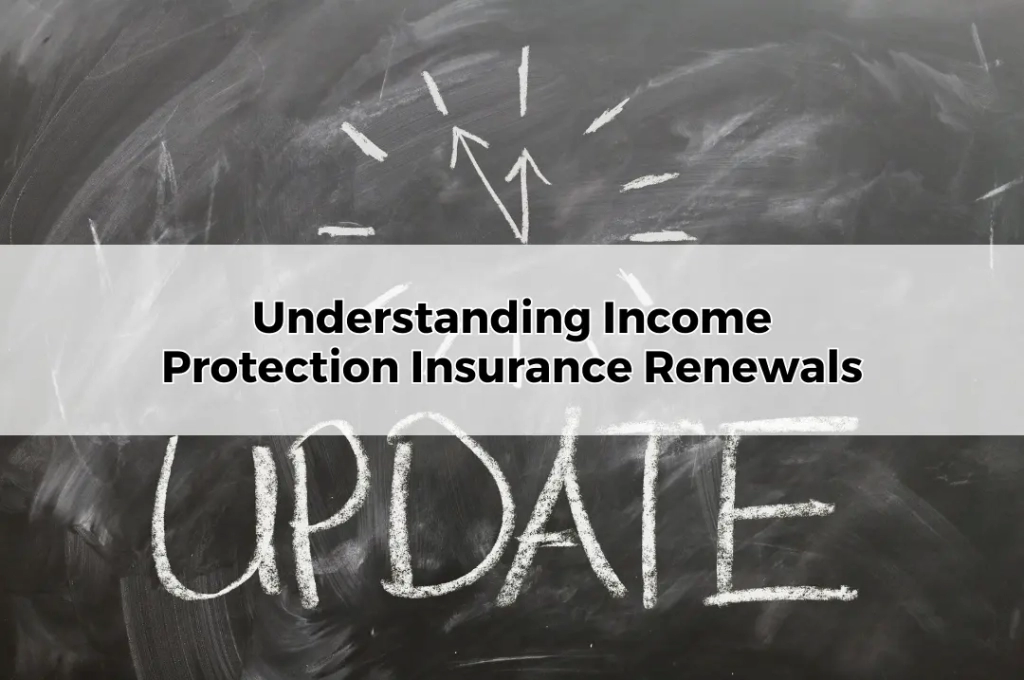Understanding Income Protection Insurance Renewals
Table of Contents
ToggleIncome protection insurance safeguards a person’s financial stability by replacing lost income due to illness or injury. For individuals in occupations or businesses reliant on physical capacity, it ensures the continuation of financial obligations. However, securing income protection is not a set-and-forget exercise. Renewals are an integral part of maintaining effective coverage. This article sheds light on the dynamics of policy renewals, what to expect, and how to manage them proactively with the help of a financial adviser.
What is Income Protection Insurance?
Income protection insurance provides periodic payments—usually a percentage of pre-tax income—if the policyholder cannot work due to injury or illness. Typically, it covers up to 75% of earnings, helping individuals meet living expenses, mortgage payments, and other essential outgoings. Policies vary across insurers, with some offering additional features such as mental health coverage or rehabilitation benefits. For clients in Toowoomba or across Australia, engaging with an online financial adviser ensures they access policies tailored to their circumstances.
Why Regular Renewal is Essential
Insurance renewal is essential to ensure that the policy remains aligned with changing personal and financial circumstances. Over time, individuals may encounter income changes, career transitions, or family expansions that necessitate policy adjustments. Without regular renewals, policy holders risk being underinsured or facing claim disputes. For residents of Toowoomba, renewal conversations offer an opportunity to optimise coverage for evolving life stages, especially as retirement nears.
How Renewal Affects Premiums
Premiums can fluctuate during renewals based on the policy structure.
Stepped vs. Level Premium Structures
Stepped premiums increase as the policyholder ages, often resulting in higher costs each year. Level premiums, on the other hand, remain constant for the policy duration but start higher. At renewal, it’s important to review whether changing from stepped to level (or vice versa) offers better long-term value. Financial planning clients in Toowoomba benefit from tailored advice to ensure premium structures align with their financial goals.
The Role of Policy Terms in Renewals
Insurance policy terms dictate the scope of coverage. Some policies guarantee renewability, meaning they can’t be cancelled by the insurer regardless of health changes. Other policies include ‘agreed value’ or ‘indemnity’ terms, which impact the payout. Policyholders should be proactive during renewals, ensuring terms remain favourable and reflect current income levels. An online financial adviser can provide insight into whether a policy continues to meet the client’s expectations and coverage needs.
Changes in Health and Their Impact on Renewals
While many policies offer guaranteed renewability, meaning the insurer can’t refuse coverage, premiums can still increase due to changes in health. If new medical conditions arise, they may influence the insurer’s risk assessment, leading to adjusted premiums. Engaging with a Toowoomba financial adviser ensures these changes are effectively managed, minimising unnecessary costs while securing adequate protection.
Occupation and Lifestyle Adjustments
Income protection policies consider occupation risk when determining premiums. A shift from a high-risk job, such as construction, to a low-risk office role can significantly lower premium costs at renewal. Conversely, changes in lifestyle, such as engaging in extreme sports, might increase premiums. Financial planning in Toowoomba includes ensuring clients’ policies reflect their professional and personal lives accurately to maintain both coverage and affordability.
The Importance of Indexation in Income Protection
Indexation ensures that benefits keep pace with inflation, maintaining the value of payouts over time. Many policies automatically apply indexation, increasing both premiums and benefit levels each year. During renewals, clients have the option to opt out of indexation to control premium costs, though this may reduce the real value of payouts in the future.
Evaluating Benefit Periods at Renewal Time
Benefit periods refer to the duration payments continue after a claim is made—either for a specific number of years or until a certain age (e.g., 65). As individuals approach retirement, it might make sense to shorten benefit periods, especially if other financial resources are available. Tailored financial planning ensures that policies evolve with the client’s life stage and overall wealth strategy.
Waiting Periods and Their Renewal Relevance
The waiting period is the time between injury or illness and when benefits begin. Common waiting periods range from 30 to 90 days, with longer periods typically reducing premium costs. At renewal, policyholders can adjust waiting periods based on savings levels or other available resources. A Toowoomba financial adviser assists in determining the optimal balance between affordability and adequate coverage.
Rider Benefits and Optional Features
Riders are optional benefits added to the base policy, such as cover for trauma, total disability, or family care expenses. While they enhance coverage, they also increase premiums. During renewals, it’s wise to reassess whether each rider still aligns with the client’s needs. Clients working with an online financial adviser can access comparative insights across insurers, ensuring they receive maximum value.
Renewal Discounts and Loyalty Rewards
Many insurers offer renewal incentives, such as loyalty discounts or no-claim bonuses, reducing premium costs over time. For individuals holding income protection insurance over multiple decades, these discounts can provide substantial savings. Financial planning in Toowoomba involves capitalising on these incentives to manage long-term insurance expenses effectively.
How to Negotiate and Optimise Your Policy
Insurance renewals provide an excellent opportunity to negotiate terms, especially when premiums increase sharply. By comparing policies across multiple providers, clients may uncover better options. A financial adviser’s expertise ensures that policyholders don’t overpay for features they no longer need, achieving optimal coverage within budget constraints.
The Role of a Financial Adviser in Managing Renewals
Navigating insurance renewals can be complex, especially with varying terms, premium structures, and optional features. A Toowoomba financial adviser provides crucial support by reviewing the client’s existing coverage, recommending adjustments, and negotiating with insurers where necessary. With the rise of online financial advice, clients can access expert guidance at their convenience, ensuring policies align with their financial plans and future goals.
Conclusion
Income protection insurance renewals are more than a routine exercise—they are pivotal to maintaining financial security and peace of mind. Regular reviews ensure that policies reflect the client’s current needs, lifestyle, and financial situation. Working with a financial adviser, whether in Toowoomba or online, provides the insights and expertise needed to manage renewals effectively. Proactive renewal management ensures that coverage remains robust and affordable, securing long-term financial well-being for clients at every life stage.









